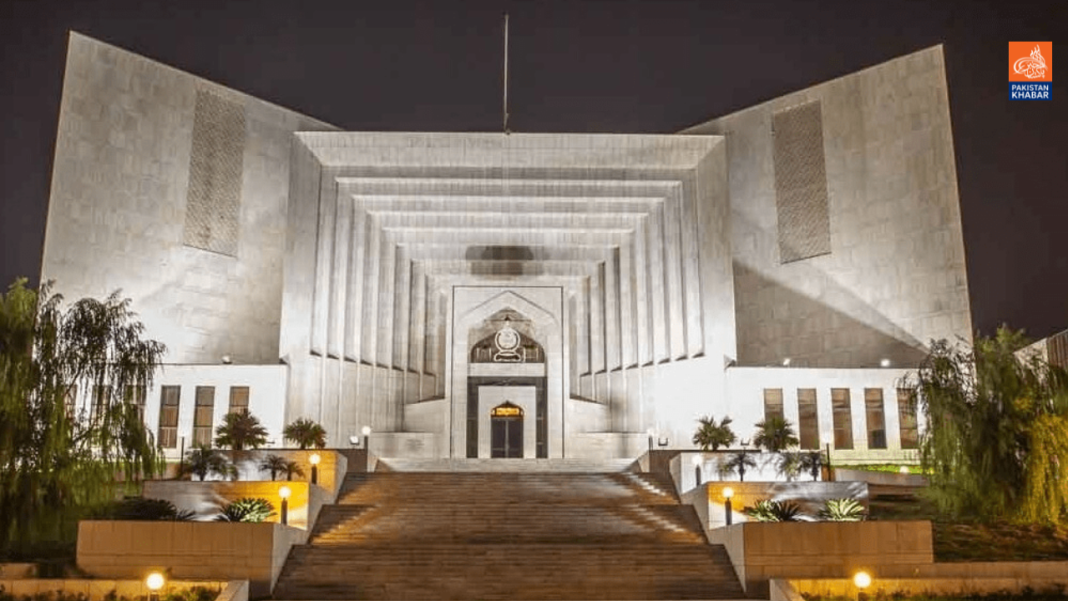On Monday, the Supreme Court (SC) suspended the Islamabad High Court’s (IHC) rulings from May 29 and June 25 in the prominent audio leaks case. The hearing was overseen by a two-member bench consisting of Justice Aminuddin Khan and Justice Naeem Akhtar Afghan.
Along with putting the IHC’s decisions on hold, the SC issued notices to Bushra Bibi, the wife of former Prime Minister Imran Khan, and Najam-ul-Haq, the son of former Chief Justice Saqib Nisar. The court also accepted the federal government’s appeals challenging the IHC’s verdicts.
During the session, Justice Aminuddin Khan questioned whether the IHC had verified the authenticity of the leaked audio recordings and identified the individuals who conducted the recordings. The Additional Attorney General replied that the investigation was still ongoing.
Justice Naeem Akhtar Afghan commented on the apparent lack of effort to uncover the truth and noted that the SC had previously halted the activities of the inquiry commission. The SC stressed the need to confirm the authenticity of the recordings and questioned if the IHC had addressed this issue.
The Additional Attorney General informed the court that the IHC’s orders were not final and that the high court had exceeded its jurisdiction under Article 199 of the Constitution. The SC clarified that the IHC did not have the authority to conduct investigations and stated that the case would be revisited at a later time.
Previously, the federal government had appealed to the SC against the IHC’s decision in the audio leaks case involving Bushra Bibi and Najam-ul-Haq. The appeal named several respondents, including the son of the former Chief Justice, the Pakistan Telecommunication Authority (PTA), and the Ministry of Defense.
The government contended that the IHC’s ruling was based on incorrect facts and that the court had granted relief beyond what was requested in the petitions. It also argued that the IHC lacked the authority to take suo motu notice under Article 199 and sought to have the high court’s decision declared void.
The government further pointed out that, following the audio leaks concerning political ticket distribution, the Speaker of the National Assembly had formed a committee to investigate. Najam-ul-Haq had contested the committee’s summons in the IHC.
Additionally, the government argued that the IHC had overstepped its authority by demanding reports from institutions and that the high court could not engage in fact-finding activities.
In its previous judgment, the IHC had declared any form of citizen surveillance illegal and unconstitutional. IHC Justice Babar Sattar, in a written order, directed Prime Minister Shehbaz Sharif to identify those responsible for the mass surveillance, holding the PM and his cabinet accountable both collectively and individually.
The IHC also instructed the Prime Minister to submit a report within six weeks detailing the legal framework governing the surveillance system, confirming whether it was conducted lawfully and constitutionally, and identifying those responsible for its installation and operation.
Furthermore, the IHC issued contempt of court notices to the PTA Chairman and its members, requiring them to respond within six weeks, noting that the PTA had seemingly misinterpreted the surveillance system in its report.




